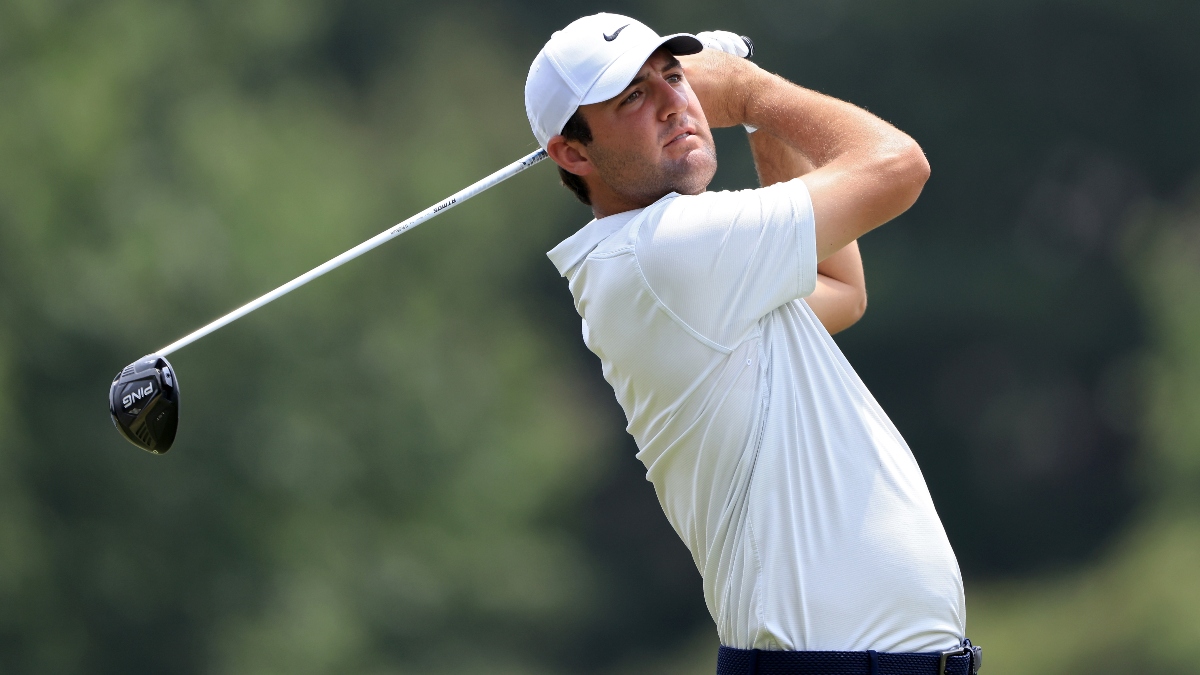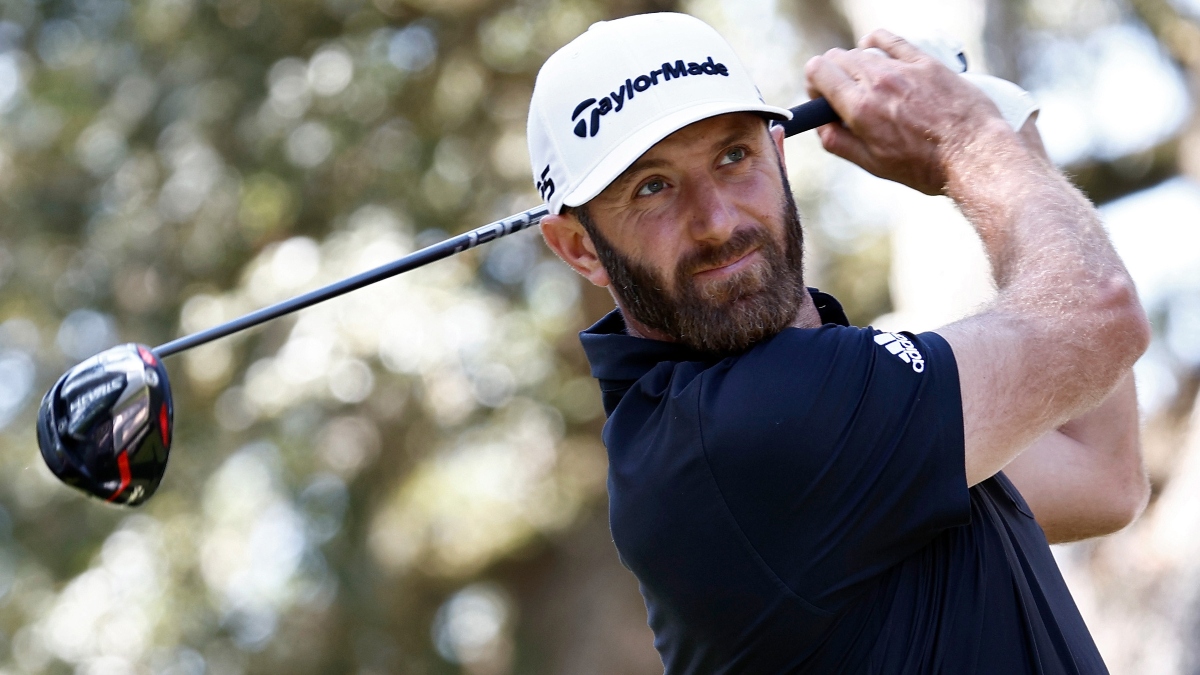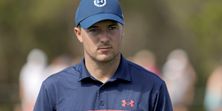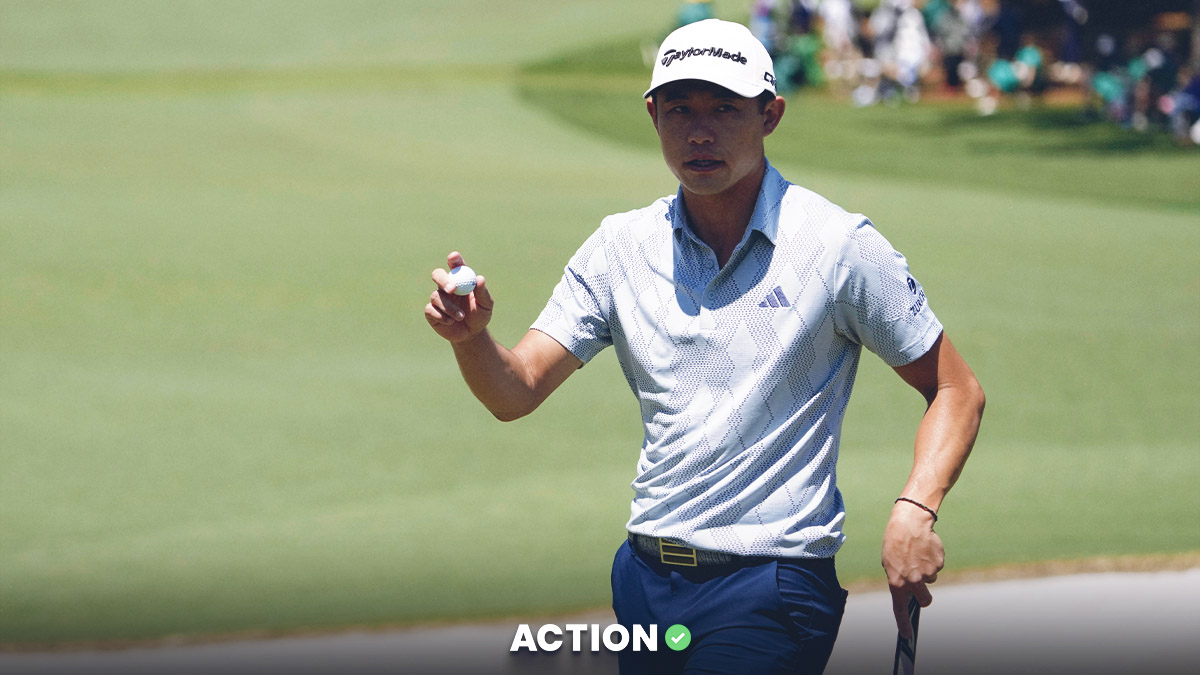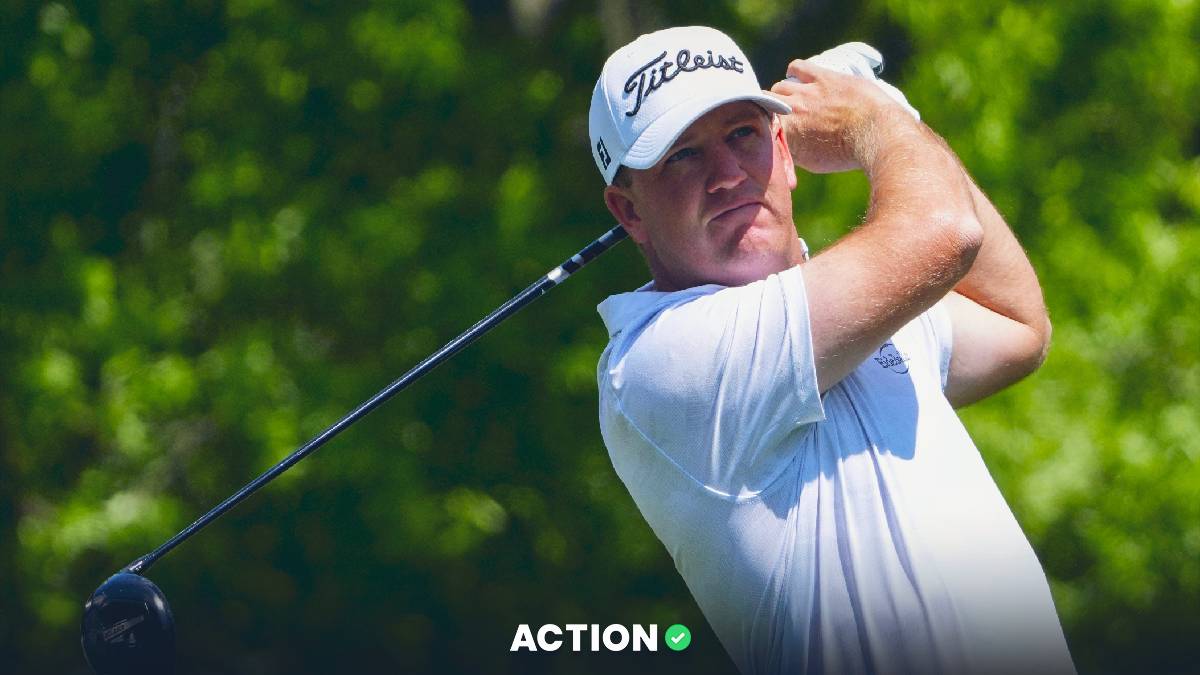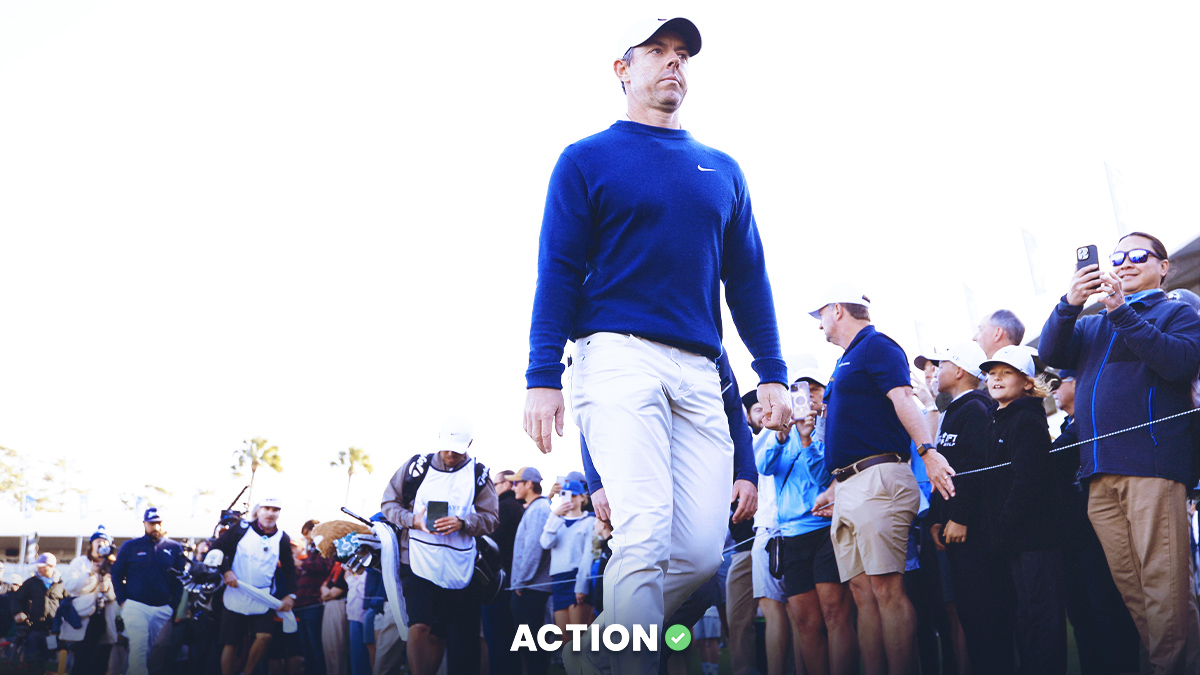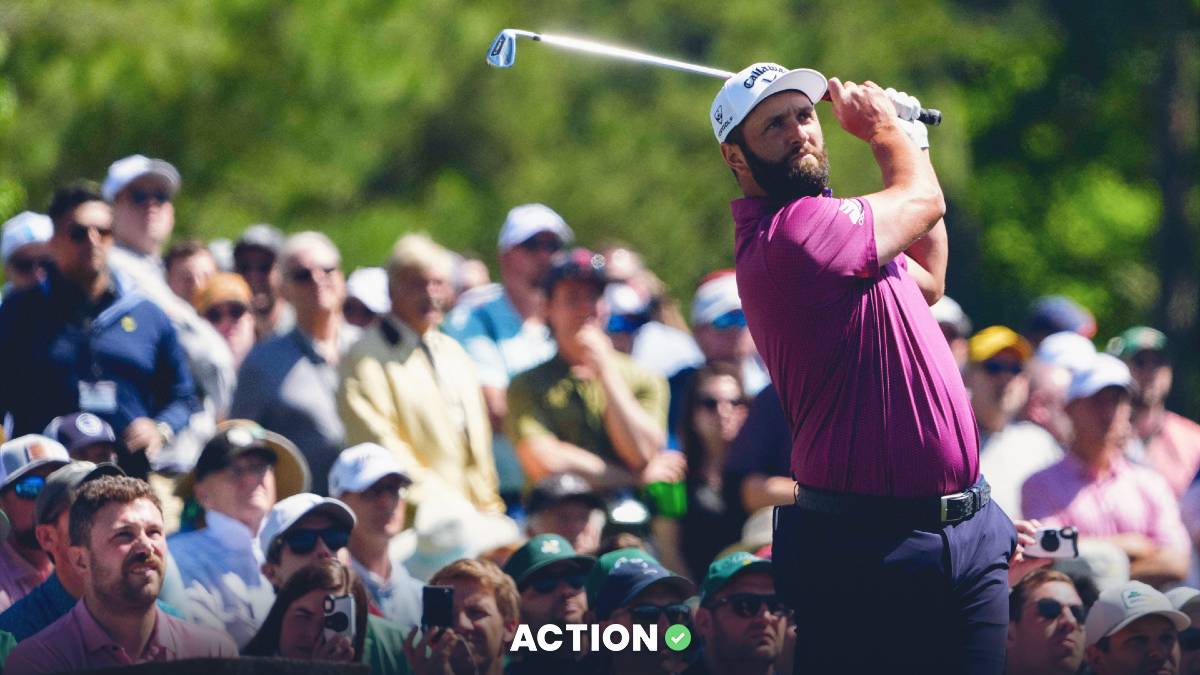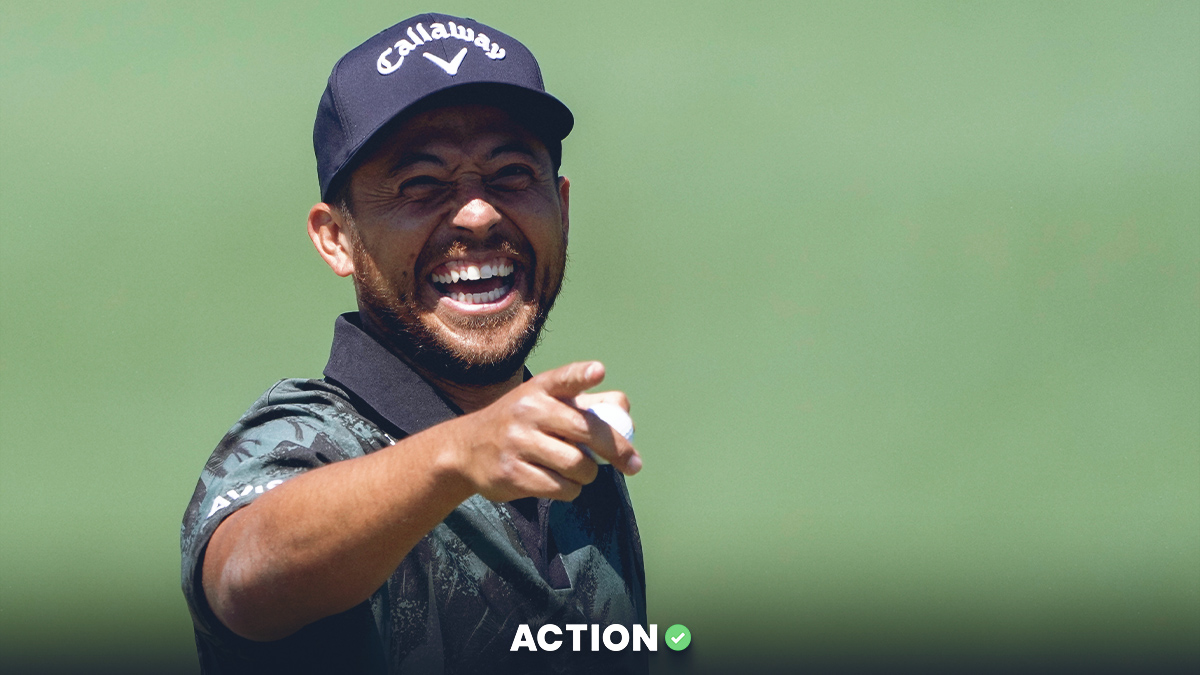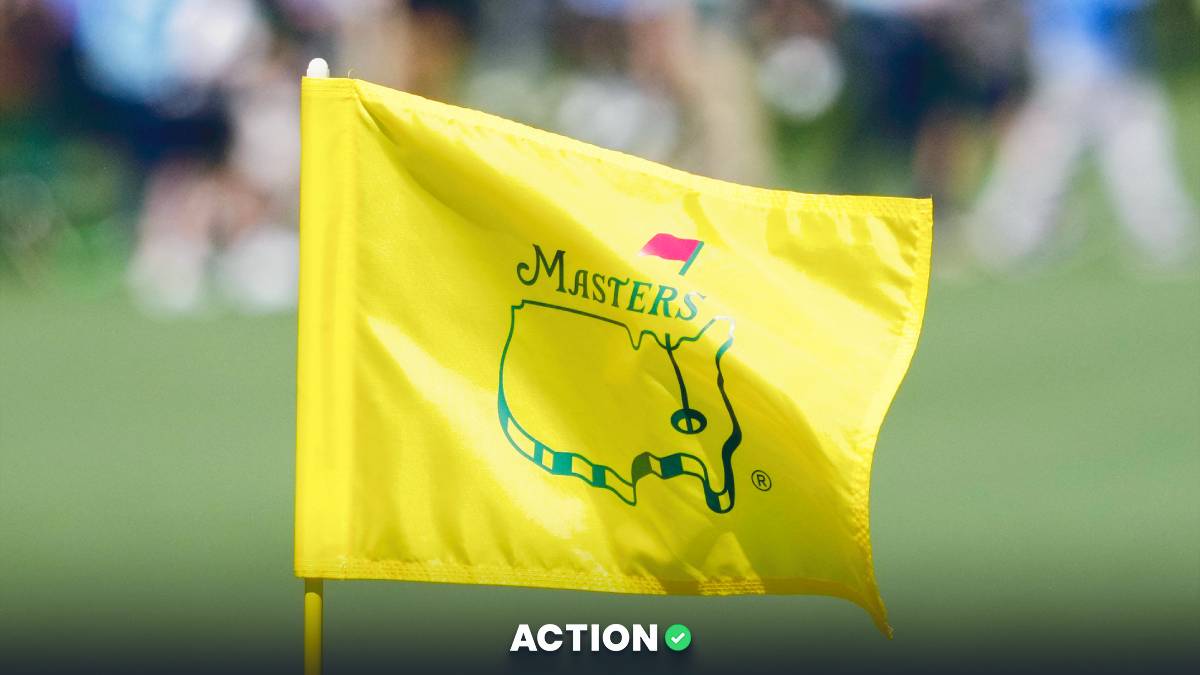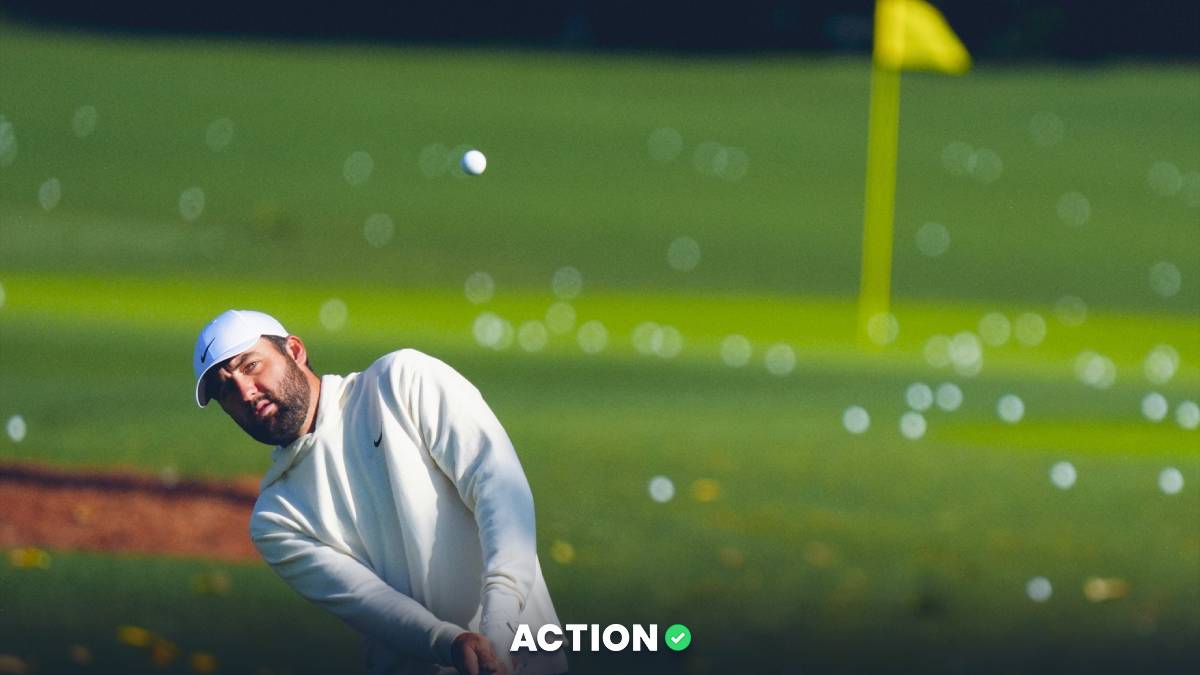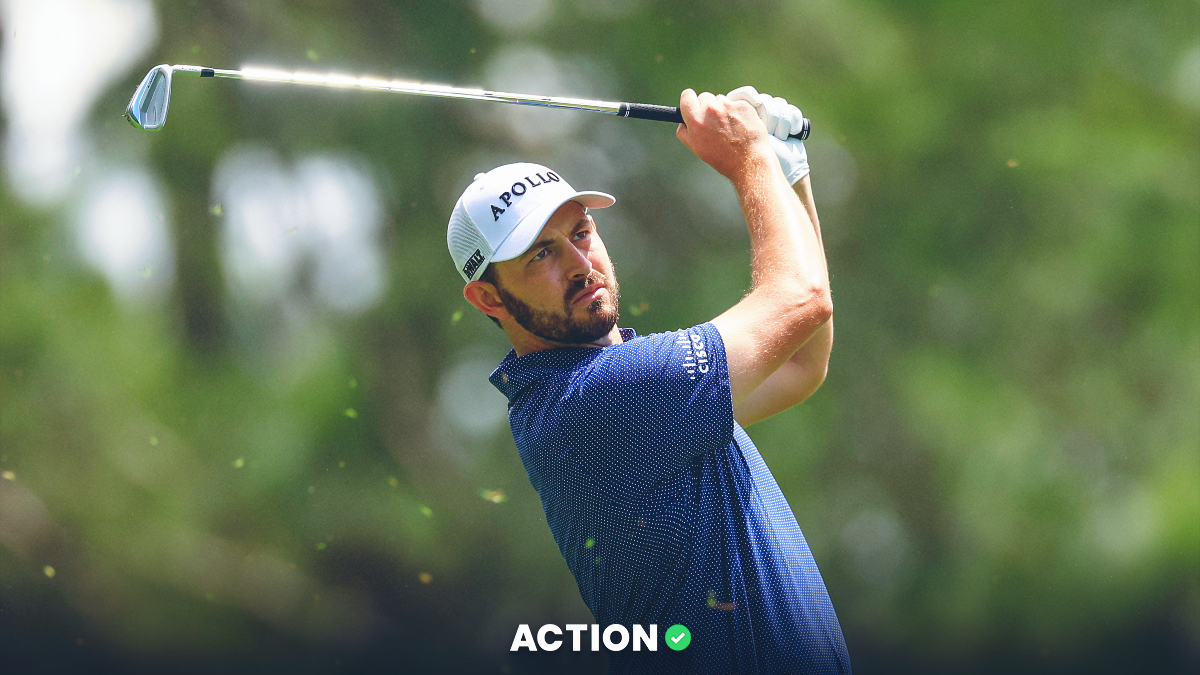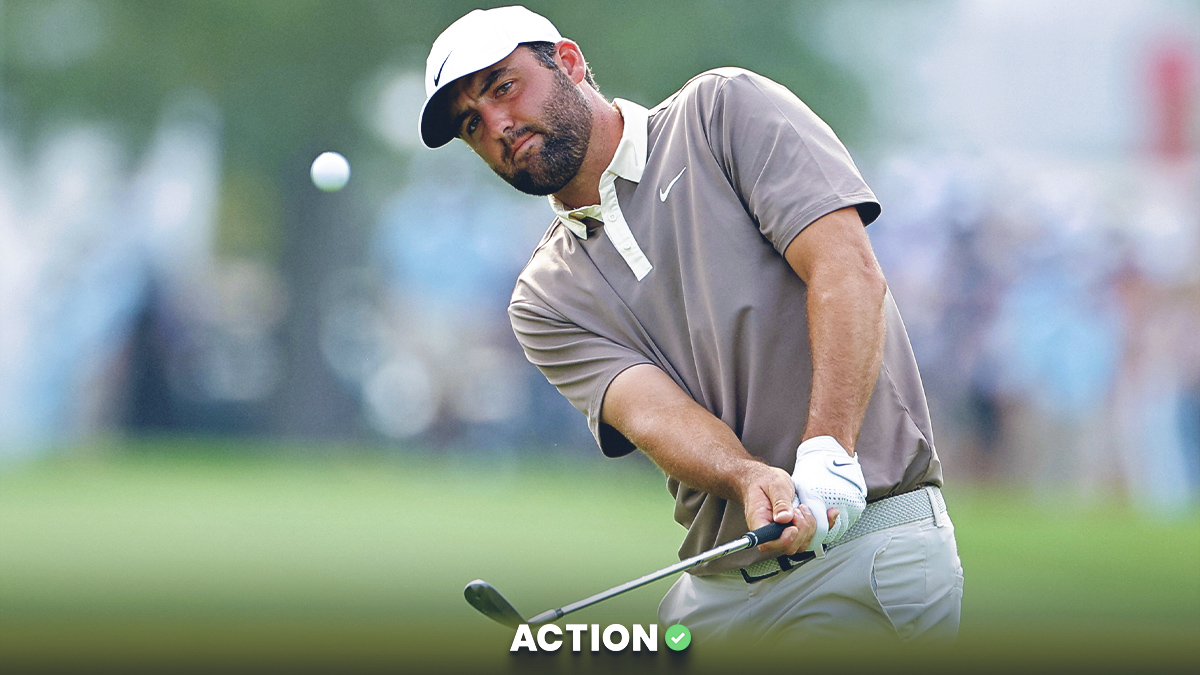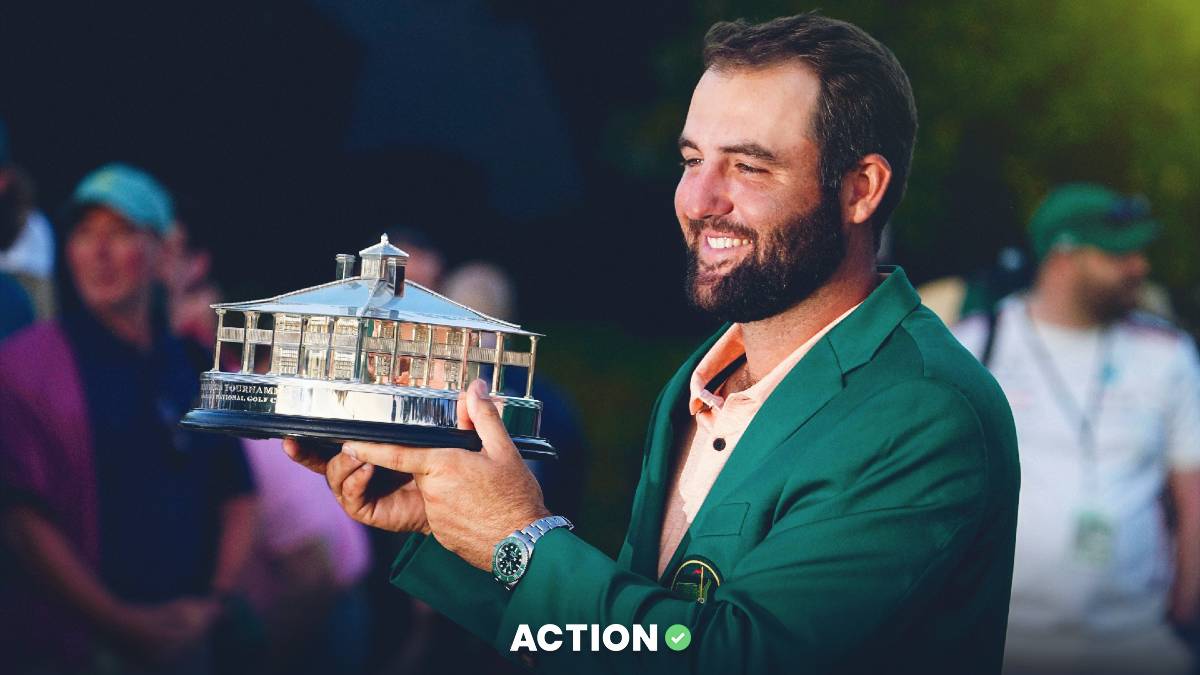Click arrow to expand 2022 PGA Championship odds via PointsBet
2022 PGA Championship Odds
| Golfer | Odds |
|---|---|
| Scottie Scheffler | +1100 |
| Jon Rahm | +1200 |
| Justin Thomas | +1400 |
| Rory McIlroy | +1400 |
| Collin Morikawa | +1600 |
| Cameron Smith | +1800 |
| Dustin Johnson | +1800 |
| Jordan Spieth | +1800 |
| Patrick Cantlay | +2000 |
| Viktor Hovland | +2200 |
| Xander Schauffele | +2500 |
| Brooks Koepka | +3000 |
| Will Zalatoris | +3000 |
| Hideki Matsuyama | +3300 |
| Shane Lowry | +3300 |
| Joaquin Niemann | +4000 |
| Matthew Fitzpatrick | +4000 |
| Sam Burns | +4000 |
| Corey Conners | +5000 |
| Daniel Berger | +5000 |
| Tony Finau | +5000 |
| Bryson DeChambeau | +6000 |
| Louis Oosthuizen | +6000 |
| Max Homa | +6000 |
| Tiger Woods | +6000 |
| Jason Day | +6600 |
| Tyrrell Hatton | +6600 |
| Adam Scott | +7000 |
| Tommy Fleetwood | +7000 |
| Abraham Ancer | +8000 |
| Cameron Young | +8000 |
| Jason Kokrak | +8000 |
| Patrick Reed | +8000 |
| Billy Horschel | +9000 |
| Gary Woodland | +9000 |
| Justin Rose | +9000 |
| Keegan Bradley | +9000 |
| Marc Leishman | +9000 |
| Seamus Power | +9000 |
| Sergio Garcia | +9000 |
| Harold Varner III | +10000 |
| Matthew Wolff | +10000 |
| Maverick McNealy | +10000 |
| Rickie Fowler | +10000 |
| Si Woo Kim | +10000 |
| Talor Gooch | +10000 |
| Webb Simpson | +10000 |
| Brian Harman | +12500 |
| Cameron Champ | +12500 |
| Christiaan Bezuidenhout | +12500 |
| Erik Van Rooyen | +12500 |
| Russell Henley | +12500 |
| Thomas Pieters | +12500 |
| Aaron Wise | +15000 |
| Adam Hadwin | +15000 |
| Alexander Noren | +15000 |
| Branden Grace | +15000 |
| Bubba Watson | +15000 |
| Cameron Davis | +15000 |
| Charl Schwartzel | +15000 |
| Davis Riley | +15000 |
| Jhonattan Vegas | +15000 |
| Keith Mitchell | +15000 |
| Kevin Na | +15000 |
| Luke List | +15000 |
| Matt Kuchar | +15000 |
| Mito Guillermo Pereira | +15000 |
| Robert MacIntyre | +15000 |
| Sebastian Munoz | +15000 |
| Sepp Straka | +15000 |
| Tom Hoge | +15000 |
| Joel Dahmen | +15000 |
| Cameron Tringale | +20000 |
| Chris Kirk | +20000 |
| Harry Higgs | +20000 |
| Ian Poulter | +20000 |
| Kevin Kisner | +20000 |
| Kevin Streelman | +20000 |
| KH Lee | +20000 |
| Lee Westwood | +20000 |
| Mackenzie Hughes | +20000 |
| Matt Jones | +20000 |
| Nicolai Hoejgaard | +20000 |
| Ryan Fox | +20000 |
| Ryan Palmer | +20000 |
| Stewart Cink | +20000 |
| Adri Arnaus | +25000 |
| Anirban Lahiri | +25000 |
| Bernd Wiesberger | +25000 |
| Carlos Ortiz | +25000 |
| Francesco Molinari | +25000 |
| Garrick Higgo | +25000 |
| Henrik Stenson | +25000 |
| J. J. Spaun | +25000 |
| Joo-Hyung Kim | +25000 |
| Lanto Griffin | +25000 |
| Lucas Glover | +25000 |
| Lucas Herbert | +25000 |
| Martin Kaymer | +25000 |
| Patton Kizzire | +25000 |
| Richard Bland | +25000 |
| Russell Knox | +25000 |
| Sam Horsfield | +25000 |
| Troy Merritt | +25000 |
| Beau Hossler | +30000 |
| Brendan Steele | +30000 |
| Dean Burmester | +30000 |
| Justin Harding | +30000 |
| Laurie Canter | +30000 |
| Min Woo Lee | +30000 |
| Pablo Larrazabal | +30000 |
| Padraig Harrington | +30000 |
| Zach Johnson | +30000 |
| Scott Stallings | +30000 |
| Oliver Bekker | +35000 |
| Shaun Norris | +35000 |
| Adam Schenk | +40000 |
| Chad Ramey | +40000 |
| Danie van Tonder | +40000 |
| Hudson Swafford | +40000 |
| Kramer Hickok | +40000 |
| Rikuya Hoshino | +40000 |
| Takumi Kanaya | +40000 |
| Alex Beach | +50000 |
| Alex Cejka | +50000 |
| Austin Hurt | +50000 |
| Bio Kim | +50000 |
| Brandon Bingaman | +50000 |
| Casey Pyne | +50000 |
| Chan Kim | +50000 |
| Colin Inglis | +50000 |
| Jared Jones | +50000 |
| Jason Dufner | +50000 |
| Jesse Mueller | +50000 |
| Jinichiro Kozuma | +50000 |
| John Daly | +50000 |
| Kyle Mendoza | +50000 |
| Matthew Borchert | +50000 |
| Michael Block | +50000 |
| Nic Ishee | +50000 |
| Paul Dickinson | +50000 |
| Rich Beem | +50000 |
| Ryan Brehm | +50000 |
| Ryan Vermeer | +50000 |
| Ryosuke Kinoshita | +50000 |
| Sadom Kaewkanjana | +50000 |
| Sean McCarty | +50000 |
| Shaun Micheel | +50000 |
| Shawn Warren | +50000 |
| Tim Feenstra | +50000 |
| Tyler Collet | +50000 |
| Wyatt Worthington | +50000 |
TULSA, Okla. — The following statement is a working theory which requires an open mind and a keen attention to detail in order to note the distinction.
Length matters. Distance doesn’t.
I get it. This might sound like an admittedly curious conflict — and granted, it’s really just relevant to the highest level of professional golfers. That doesn’t make it any less truthful.
Let’s start with distance. This week’s PGA Championship scorecard yardage is 7,556 yards. That’s massive. And it doesn’t even tell the entire story.
The second hole is a 557-yard par 4. The fifth is a 656-yard par 5. The eighth is a 251-yard par 3. The 13th is a 632-yard par 5. The 14th is a 230 yard par-3. The 16th is a 527-yard par 4.
And you know what? It just doesn’t matter. None of those numbers are too daunting for the game’s best players.
All of which brings us to length. The analytics have proven that the long game is more important than the short game, more sustainable, and length offers a greater advantage to these players.
But here’s the rub: They’re all long enough.
If you, Average Joe 10-Handicap, was playing against, say, Scottie Scheffler on a 7,556-yard course, you’d have no chance for a bunch of reasons, but especially because of the built-in advantage that his length would give him. Against his fellow professionals, though, Scheffler doesn’t have that same advantage. In fact, nobody does — even the longest of the long.
This season’s driving distance leader is Cameron Champ at 323.8. Last on the list of the 210 who have qualified is Brian Stuard at 274.9.
The first thing we should note here is that Stuard ranks 124th on the season-long points list, while Champ is 145th. Really, though, that’s besides the point. The main takeaway is that the discrepancy between most pros at this level is much less than the 48.9 yards between first and last.
The truth is that 58% of the PGA TOUR falls in the average driving distance range from 290 yards to 305. That measly 15-yard dispersion rate is what separates the “long” hitters from the “short” ones, which of course is all based on just perception.
Think about it: The longest course in major championship history was last year's PGA Championship at Kiawah's Ocean Course, which played to 7,876 yards on the scorecard — and was won by a 50-year-old.
Let’s play a little game here.
We’d all agree that Dustin Johnson is a big hitter, right? He’s a lanky, athletic dude who can give it some gas when he needs to and bang it out there with the best of ‘em.
And we’d similarly admit that Jordan Spieth is more of the right-brain type, less Randy Johnson than Greg Maddux, painting the corners to do most of his damage rather than rearing back and throwing heaters.
Well, how’s this for perception: Johnson is averaging 309.5 yards per drive, while Spieth is averaging 307.5, a negligible two-yard differential between them.
There are plenty of other examples, too.
Big, bad Brooks Koepka, with those forearms that look like he’s always ready to snap a club Bo Jackson-style, is averaging 309.8 yards per drive. That’s right behind sweet-swinging 41-year-old Adam Scott, whose move makes it seem like he doesn’t want to accidentally hurt a butterfly at impact.
Then there’s Tony Finau, who looks like he should be the starting tight end on your fantasy team. He’s at 300.3 this season — the exact same number as that noted tee-slayer Robert Streb.

The truth is that judging a player’s average distance with, say, his 7-iron might be a more beneficial statistic than driving distance, considering hitting a 7-iron from 220 yards where others are using a 5-iron offers a distinct advantage. The only thing driving distance shows us is that there isn’t an elite talent in the world who is too short off the tee.
And therein lies the main theme: A player doesn’t necessarily need to be excessively long to have success at the highest level. He simply needs to be long enough — and the truth is that just about everyone playing at this level is long enough at just about every course.
That includes Southern Hills, where the yardage makes it one of the meatiest tracks we’ll see on the schedule all year. Not that it’ll matter.
Until the day we witness one of golf’s governing bodies stretch out a championship course to something more than 8,000 yards, we should realize that current distances are hardly intimidating to these guys. (And really, if and when they’re finally stretched out to that yardage, the average pro will be even longer, negating any such advantage for the “long” hitters.)
Keep this in mind when prognosticating and making selections for this week’s tournament. Length is only a massive advantage when one player owns it and another doesn’t.
Just about all of the serious candidates for this title can move it out there enough. The short hitters might not stand a chance, but that’s only because they rarely exist at the highest level of professional golf today.
